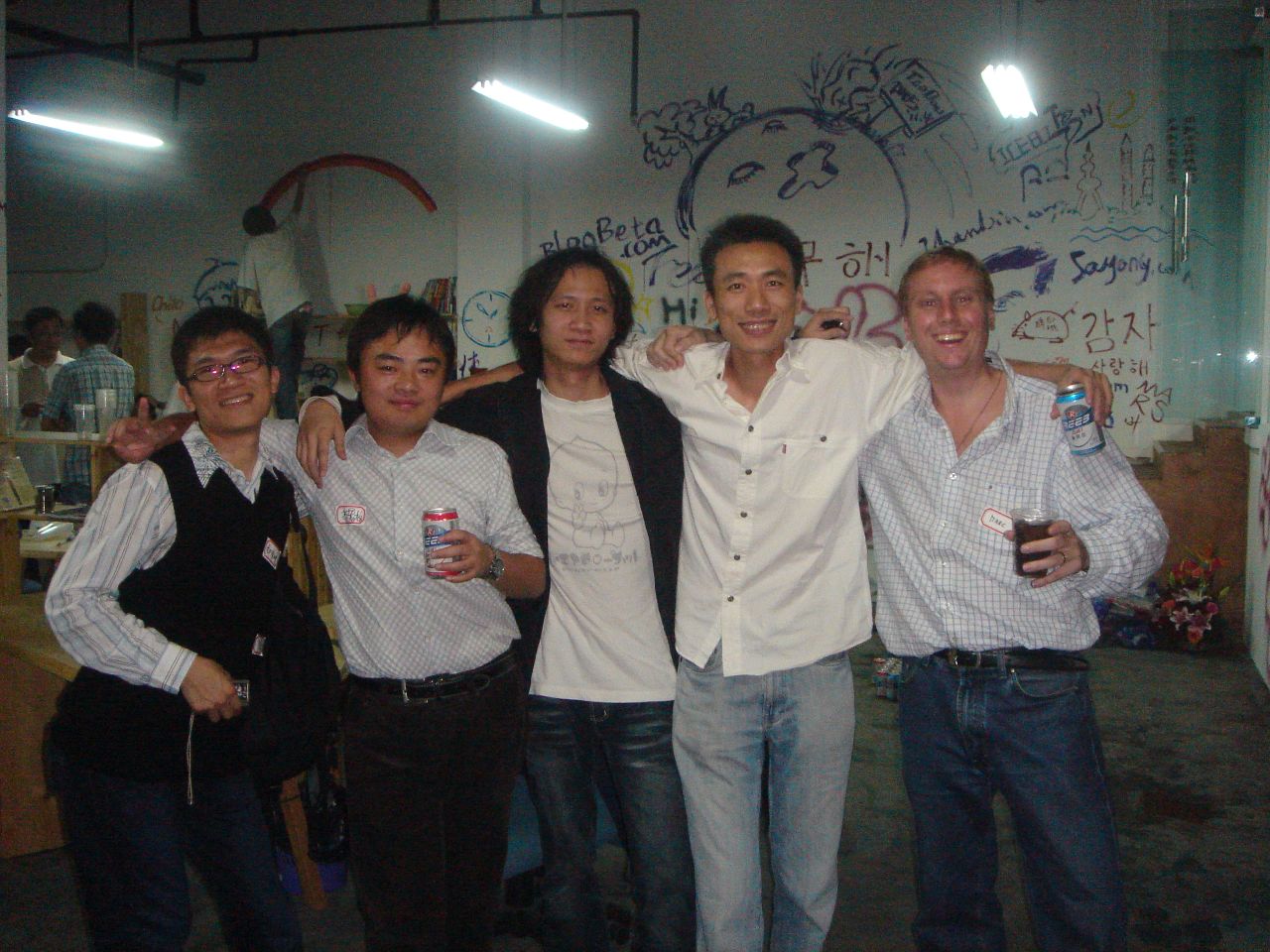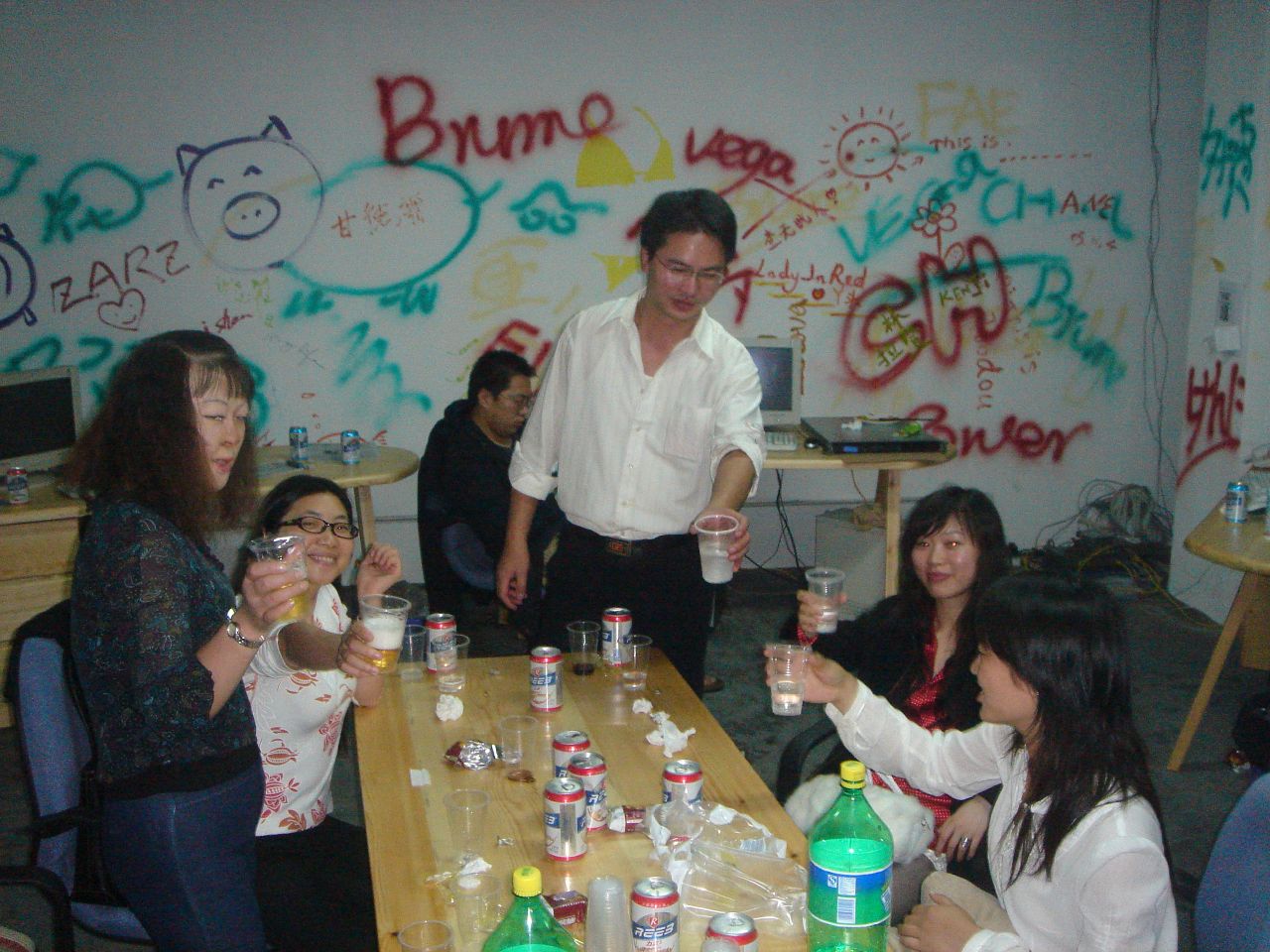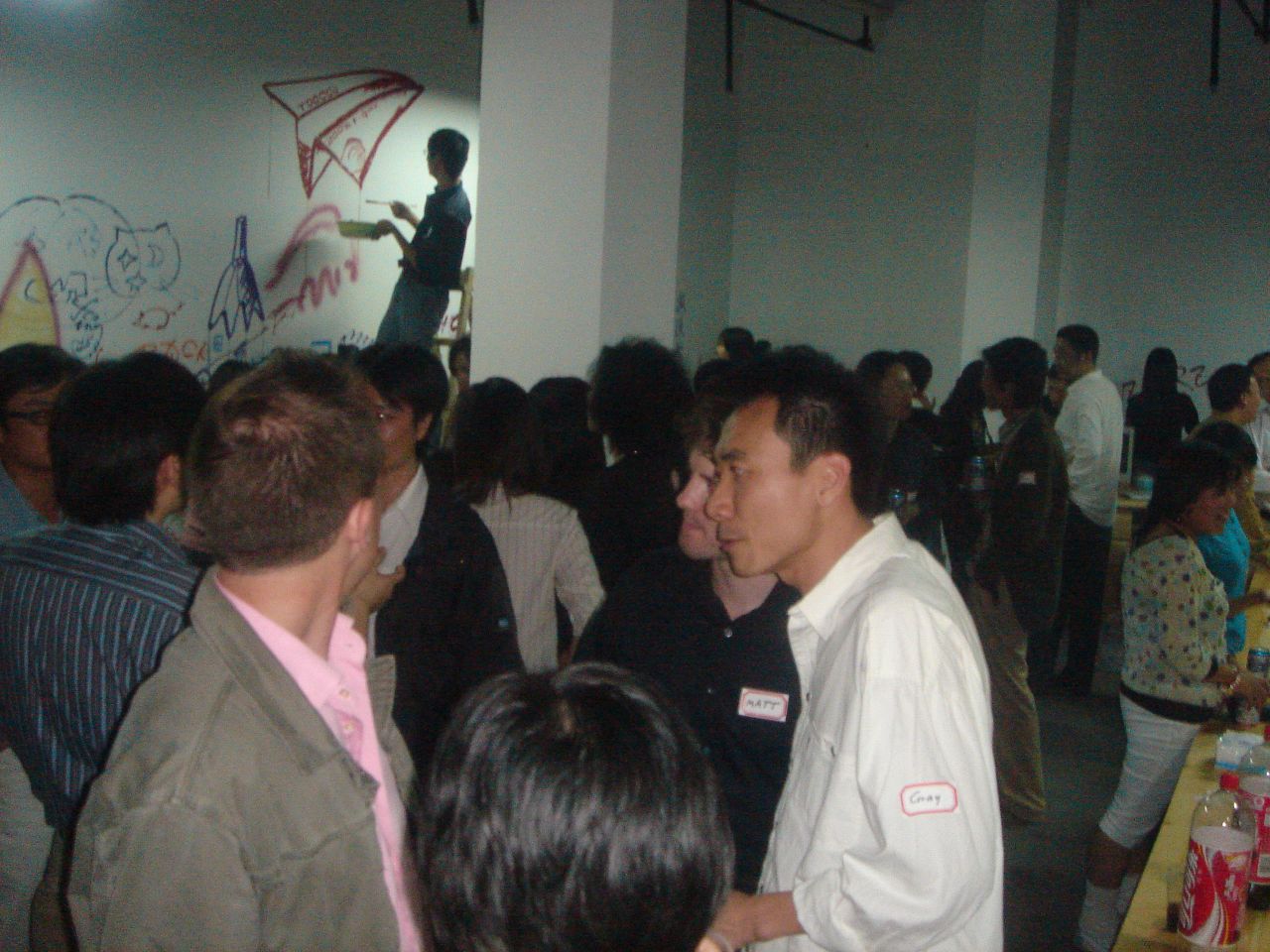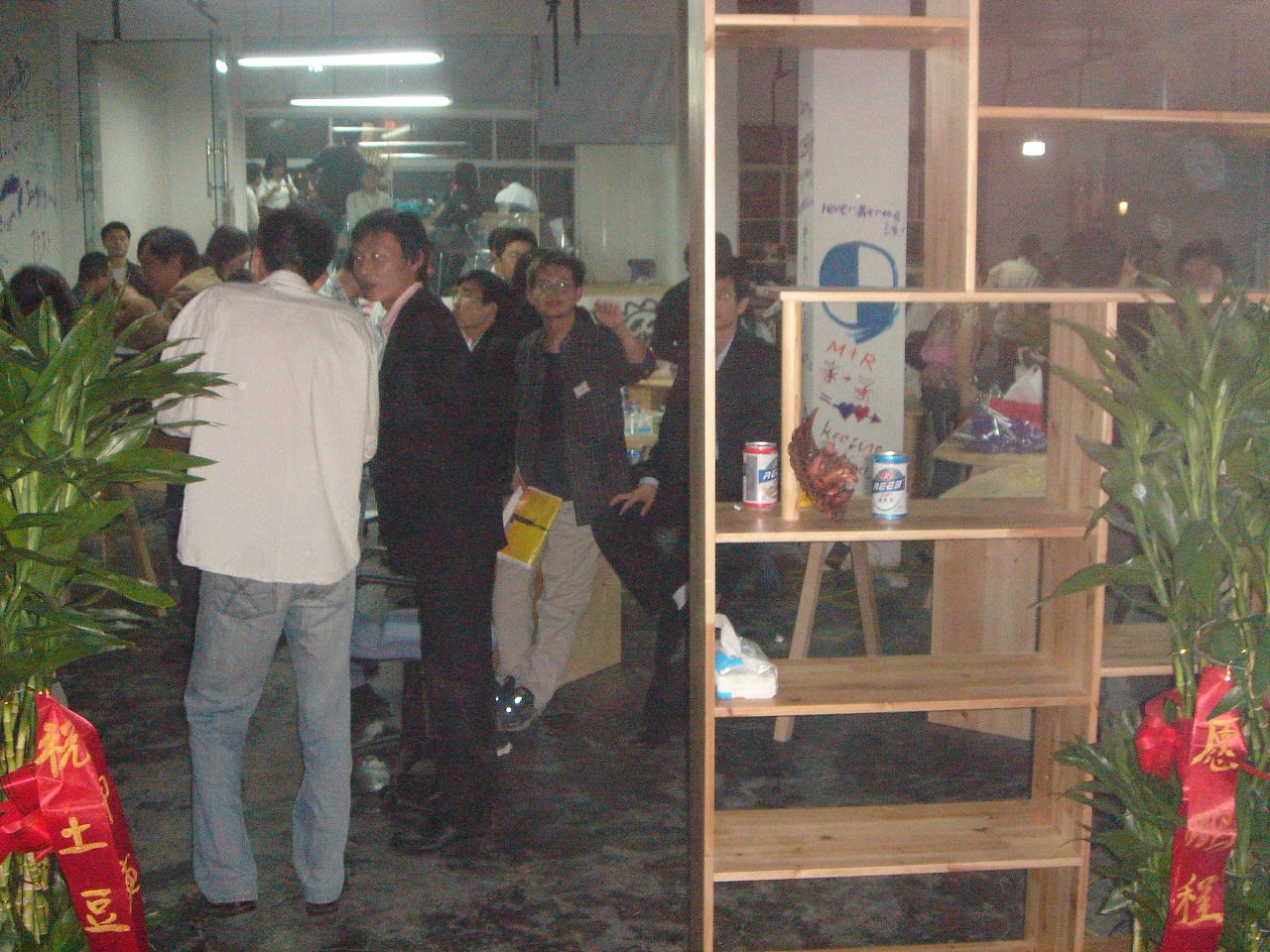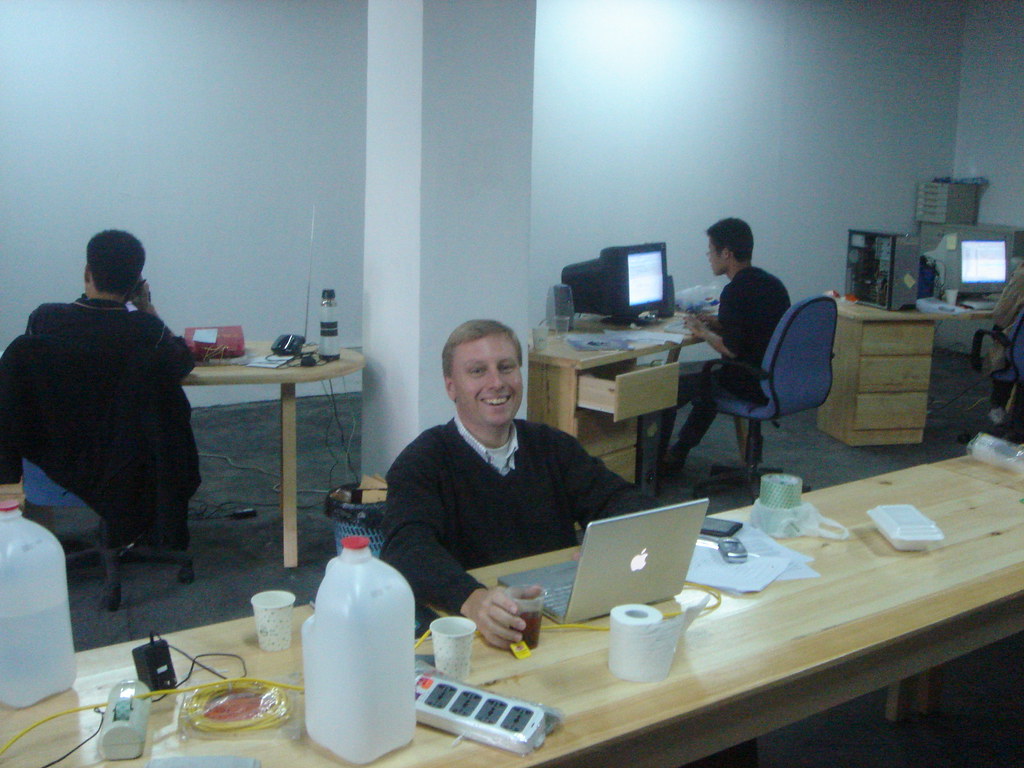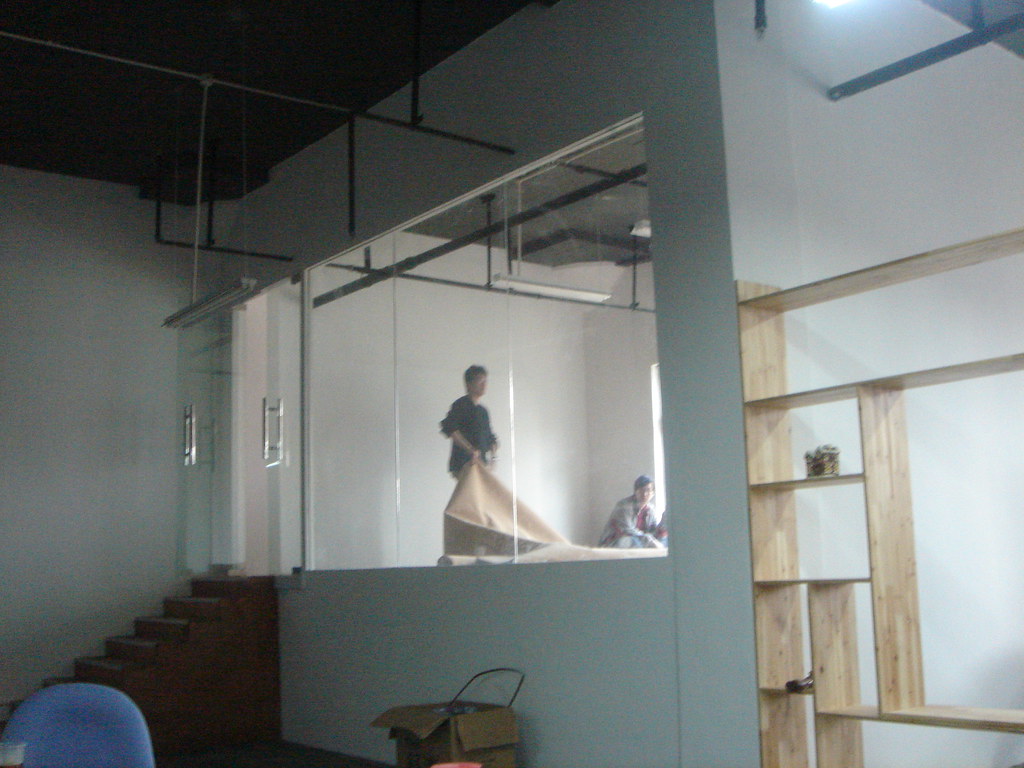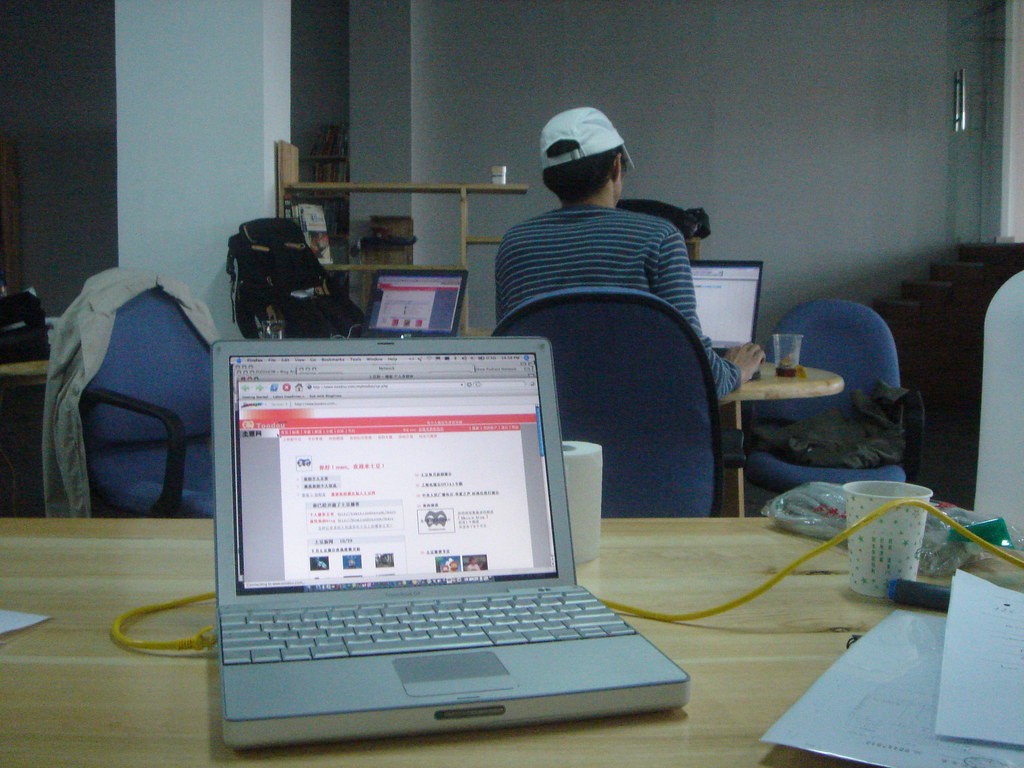Today Holland’s biggest newspaper, De Telegraaf, published an article about Toodou.com. I got lots of phone calls and emails today because of this, it’s amazing to see how many people read it. Traditional media still seem to rule, at least in Holland!
Also just got off the phone with a reporter from Dutch radio program Radio Online. This is a weekly program on Dutch Radio 1 about the internet and online activities. They plan to interview me on Tuesday in their program, but because the program is live and broadcasted at 8 PM I need to get up at 3 AM… The program is also available as podcast, will put a link here.
For the Dutch readers, this is today’s article:
In digitale tijdperk zetelt het nieuwe Hollywood in China
NEDERLANDER PIONIERT IN VIDEOPODCASTING VANUIT SJANGHAI
door ANNE MEIJDAM
SJANGHAI – Met Apples allernieuwste iPod kunnen voor het eerst video’s worden afgespeeld, maar wat de gebruiker allemaal op zijn scherm kan krijgen, is tot dusver nog niet erg duidelijk. Op een vijftal televisieseries na die alleen in Amerika kunnen worden gedownload, is de consument eigenlijk behoorlijk aan zichzelf overgeleverd. Voor de oplossing van dat probleem kijkt de hele wereld zoals gebruikelijk ook nu weer naar de VS, toch dé zetel van de internationale amusementsindustrie. Maar interessant genoeg zou een heel grote bijdrage nog wel eens geleverd kunnen worden door een land waarvan niemand dat verwacht: China.
Dat stelt Marc van der Chijs, een 32-jarige geboren en getogen Arnhemmer die met zijn bedrijf Toodou.com vanuit Sjanghai een wereldwijde voorsprong heeft in het zogeheten videopodcasting: de technologie die individuen in staat stelt zelfgeproduceerde muziek, foto’s en nu ook filmpjes op een website te parkeren.
Anderen kunnen via die website de producties weer downloaden en afspelen. Natuurlijk op computers, maar ook mp3-spelers, mobiele telefoons en op Apples beroemde iPod.
„De videovariant is zeker vergeleken met muziekpodcasting over de hele wereld nu nog het ondergeschoven kindje”, zegt Van der Chijs. „Maar met wat we hier bij Toodou voor elkaar hebben gekregen, daar kunnen ze in de rest van de wereld alleen nog maar van dromen.”
Toodou – wat aardappel betekent – bestaat pas sinds oktober vorig jaar, maar het beheert nu al zo’n 13.000 producten van Chinese makelij, waarvan er zo’n 5000 regelmatig worden vernieuwd. Een aantal dat zich zelfs per dag uitbreidt. Bijdragen variëren van onder andere een indrukwekkende korte documentaire over de problemen in de fabrieksstad Shenzhen, tot vrolijke kungfukluchten en zelfgemaakte muziekclips. Een kort filmpje van een meisje dat zich optuigt als Barbie werd niet minder dan 300.000 keer gedownload. Cijfers die alleen in het gigantische en computergekke China mogelijk zijn.
„Uiteindelijk willen we naar honderdduizenden kanalen toe”, aldus Van der Chijs. „Die moeten worden geproduceerd door gewone, maar wel heel creatieve mensen.” Die prognoses spreken natuurlijk ook zeker in Amerika tot de verbeelding. Een week geleden lagen de Toodou-servers geruime tijd plat door het plotseling toegenomen verkeer uit de Verenigde Staten. Dat was veroorzaakt door een enthousiast artikel van de bekende columnist Thomas Friedman over het Chinese internetbedrijf in de Amerikaanse krant The New York Times.
• De Chinezen zelf lijken al bijna verslaafd aan filmpjes op internet.
FOTO: REUTERS.
Toodou had tot voor heel kort niet meer dan zeven man fulltime personeel, de meeste medewerkers bleven gewoon in het piepkleine kantoor slapen. Maar na ondertekening van een overeenkomst deze maand met de Amerikaanse Venture Capitalist IDG (International Data Group), kunnen Van der Chijs en zijn partner Gary Wang nu op een stevige uitbreiding tot wel 22 man rekenen.
Een gloednieuw kantoor in een verbouwd pakhuis aan Sjanghai’s vermaarde Suzhoukreek wordt begin volgende maand betrokken. Over winstverwachtingen durft men bij veel internetbedrijven weliswaar nauwelijks te praten, maar de Nederlandse ondernemer lijkt zich daar zeker niet druk over te maken. Volgens hem zijn de commerciële mogelijkheden welhaast onuitputtelijk. Binnen afzienbare tijd zullen de Toodou-bezoekers een klein bedrag aan lidmaatschap voor het gebruik van de website moeten betalen, en verder tekende het bedrijf al een overeenkomst met een gsm-bedrijf voor het streamen van video’s naar mobiele telefoons.
Ook wordt er gedacht aan speciale tv-programma’s voor de meest populaire videopodcasts. „We worden welhaast dagelijks met zakenvoorstellen benaderd”, lacht Van der Chijs. „Naar aanleiding van dat artikel in The New York Times werden we ook al direct gebeld door Nokia in Finland. Wat we voor elkaar kunnen betekenen, was de vraag.”
Toodou sluit een snelle sprong naar het buitenland zeker niet uit, maar Van der Chijs verwacht dan wel een conflict met zijn investeerders. IDG wil dat het bedrijf zich eerst onwrikbaar in China nestelt voordat de rest van de wereld aan de beurt komt. „Daar moeten we snel over gaan beslissen”, zegt hij. „Om internationaal te kunnen opereren, heb je ook als Chinees internetbedrijf echter nauwelijks wat nodig. Een westerse interface en snelle servers in het buitenland. Buiten de Chinese internetfirewall.”
